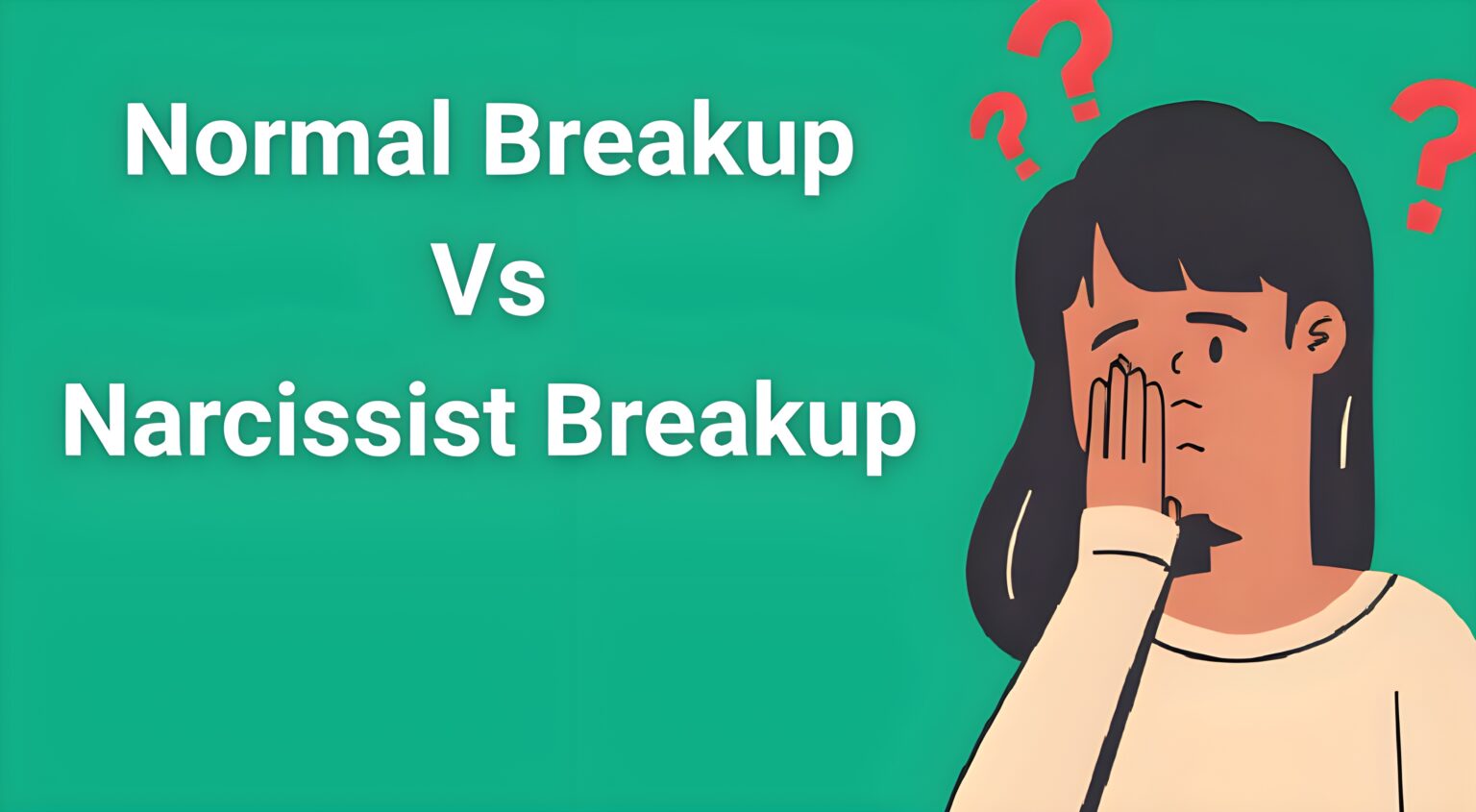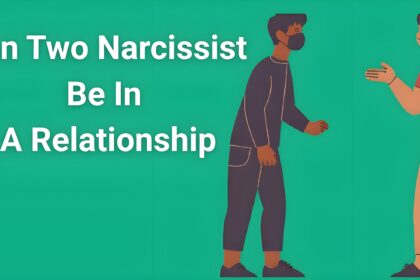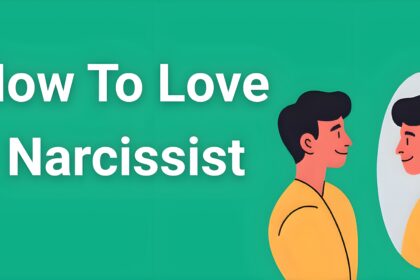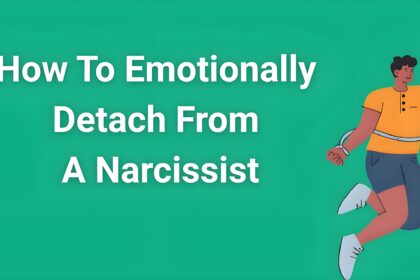If you’re questioning whether your recent breakup was “normal” heartbreak or something much more sinister, you’re not alone. The difference between a normal breakup vs narcissist breakup can be the key to understanding why you feel like you’re losing your mind instead of simply feeling sad. While regular breakups hurt, narcissistic breakups—often called “discards”—create a unique type of psychological trauma that can leave you questioning your own reality.
- What Happens in a Normal Breakup
- What Happens in a Narcissist Breakup (The Discard)
- 12 Key Differences: Normal Breakup vs Narcissist Breakup
- Signs You Experienced a Narcissistic Discard
- Why the Confusion Happens
- Healing and Moving Forward
- Breaking Free from the Trauma Bond
- Frequently Asked Questions
- Conclusion
Understanding these crucial differences isn’t just about labels—it’s about your healing, your future relationships, and most importantly, your sanity. Let’s dive deep into what makes these two experiences worlds apart.
What Happens in a Normal Breakup
In healthy relationships, even painful endings follow certain predictable patterns that, while heartbreaking, allow both people to maintain their dignity and sense of self.
Mutual Respect During the End
A normal breakup typically involves some level of mutual respect, even when emotions run high. Both partners acknowledge that the other person has feelings, needs, and a perspective worth considering. There might be disagreements about the reasons for the split, but there’s generally an understanding that both people are human beings deserving of basic kindness.
Even in cases where one person initiates the breakup and the other doesn’t want it to end, there’s usually some attempt at explanation, closure, or at least acknowledgment of the pain being caused. The person ending the relationship might feel guilty about hurting their partner, which, while painful, demonstrates normal human empathy.
Gradual Relationship Decline
Most healthy relationships that end show warning signs over time. Partners might grow apart gradually, have increasing conflicts they can’t resolve, or realize they want different things in life. There’s often a period where both people sense something isn’t working, even if they can’t quite put their finger on what’s wrong.
This gradual decline allows both partners to mentally prepare for the possibility of a breakup. While the final conversation might still be shocking or painful, there’s typically been some underlying awareness that the relationship was struggling.
Opportunity for Closure
Normal breakups, even messy ones, usually provide some opportunity for closure. This might involve:
- Explaining reasons for the breakup (even if you disagree with them)
- Allowing both people to express their feelings
- Discussing practical matters like shared belongings or mutual friends
- Sometimes maintaining friendship or at least civil contact
The person initiating the breakup generally shows some concern for their ex-partner’s wellbeing and tries to minimize unnecessary pain, even if they’re not always successful.
Processing and Healing
After a normal breakup, you experience typical grief stages: denial, anger, bargaining, depression, and eventually acceptance. While this process is painful, it follows a somewhat predictable pattern, and you generally maintain your sense of self throughout it.
You might question the relationship or wonder “what if,” but you don’t typically question your own memories, perceptions, or sanity. Friends and family can usually provide comfort and perspective that helps you heal over time.
What Happens in a Narcissist Breakup (The Discard)
A narcissistic breakup—more accurately called a “discard“—follows entirely different rules. Understanding the normal breakup vs narcissist breakup difference here is crucial because narcissistic discards are designed to maximize your psychological pain while preserving the narcissist’s ego and control.
The Abrupt, Cruel Termination
Unlike normal breakups that might build gradually, narcissistic discards often happen with shocking suddenness. One day you’re receiving love declarations and future plans, the next day you’re being told you’re worthless and the relationship is over. This whiplash effect is intentional—it’s designed to leave you completely destabilized.
The narcissist shows no concern for your emotional wellbeing during the discard. In fact, they often seem to enjoy your pain or use it as evidence of how much power they hold over you. There’s typically no gentle letdown, no consideration of your feelings, and no acknowledgment of any good times you shared.
Everything Becomes Your Fault
In a narcissistic discard, you’ll find yourself blamed for everything that went wrong in the relationship, including the narcissist’s own behavior. They’ll rewrite history to make themselves the victim and you the villain. Problems they created or contributed to will suddenly be entirely your responsibility.
This blame-shifting serves multiple purposes for the narcissist: it protects their ego, justifies their cruel treatment of you, and leaves you so focused on defending yourself that you don’t examine their behavior too closely.
No Real Closure
Narcissists rarely provide genuine closure because that would require empathy, accountability, and honest communication—none of which they’re capable of providing. Instead, you’re left with:
- Contradictory explanations that don’t make sense
- Blame and criticism disguised as “reasons”
- Sudden silent treatment or blocked communication
- False explanations designed to hurt rather than inform
The lack of closure is actually a manipulation tactic. It keeps you mentally engaged with them, trying to figure out what went wrong, which prevents you from moving on and healing.
The Smear Campaign
One of the most devastating aspects of narcissistic discards is the smear campaign that often follows. The narcissist will work to destroy your reputation and relationships, spreading lies and exaggerated stories about you to anyone who will listen.
This serves to:
- Ensure they control the narrative about your relationship
- Isolate you from potential support systems
- Make you look like the “crazy” one if you try to defend yourself
- Provide them with sympathy and attention as the “victim”
12 Key Differences: Normal Breakup vs Narcissist Breakup
Understanding these specific differences can help you identify what you’ve experienced and begin appropriate healing:
1. Timing and Warning Signs
Normal: Gradual decline with warning signs over weeks or months Narcissistic: Sudden discard, often immediately after expressing love or making future plans
2. Empathy and Concern
Normal: Shows concern for your feelings, even if still ending the relationship Narcissistic: Complete lack of empathy; may seem to enjoy your pain
3. Explanation and Closure
Normal: Attempts to explain reasons, even if explanations are inadequate Narcissistic: No real explanation or contradictory explanations designed to confuse
4. Blame Distribution
Normal: May blame both parties or specific circumstances Narcissistic: Everything is entirely your fault; they’re the innocent victim
5. Respect for Shared History
Normal: Acknowledges good times and positive aspects of the relationship Narcissistic: Rewrites history; claims the entire relationship was terrible
6. Communication After
Normal: May maintain some contact for practical matters or eventual friendship Narcissistic: Either complete silent treatment or contact only to inflict more pain
7. Public Behavior
Normal: Keeps relationship details relatively private Narcissistic: Launches smear campaign to damage your reputation
8. Your Emotional State
Normal: Sad, hurt, angry, but sense of self remains intact Narcissistic: Confused, questioning reality, feeling “crazy” or worthless
9. Support System Response
Normal: Friends and family can understand and comfort you Narcissistic: Others may be confused by your intense reaction or have been poisoned against you
10. Recovery Pattern
Normal: Typical grief stages leading to eventual acceptance Narcissistic: Complex trauma symptoms, difficulty moving forward
11. Future Contact
Normal: If contact resumes, it’s generally honest about intentions Narcissistic: “Hoovering” attempts designed to regain control, not genuine reconciliation
12. Your Mental Health
Normal: Temporary sadness and adjustment difficulties Narcissistic: Symptoms of anxiety, depression, PTSD, and trauma bonding
Signs You Experienced a Narcissistic Discard
If you’re still unsure about the normal breakup vs narcissist breakup distinction in your situation, consider these specific signs:
You’re Questioning Your Own Memories
One of the clearest signs you’ve experienced narcissistic abuse is when you find yourself doubting your own memories and perceptions. If you’re thinking thoughts like “Did I make all of this up?” or “Maybe I am too sensitive,” this is often the result of systematic gaslighting.
The Intensity of Your Reaction Surprises You
While all breakups hurt, narcissistic discards often produce reactions that feel disproportionate to others (and sometimes even to yourself). You might feel like you’re having a breakdown over someone who treated you poorly, which can be confusing and shameful.
This intense reaction is actually your nervous system responding to psychological trauma, not just regular heartbreak.
You Feel Addicted to Them
Normal breakups involve missing someone; narcissistic discards often create what feels like a chemical addiction. You might find yourself obsessively checking their social media, driving by their house, or desperately hoping they’ll contact you—even though you logically know they treated you badly.
This “addiction” is the result of trauma bonding, where the cycle of abuse and intermittent reinforcement creates powerful psychological dependency. If you’re struggling with obsessive thoughts and behaviors that feel beyond your control, you might benefit from specialized support. The 30 Day Trauma Bond Recovery Workbook offers a science-based system specifically designed to break these neurological patterns that willpower alone can’t overcome.
Everyone Thinks You Should “Just Get Over It”
Friends and family who witnessed a narcissistic relationship often don’t understand why you can’t simply move on, especially if the narcissist was charming in public. Their well-meaning advice to “count your blessings” or “you’re better off without them” can feel invalidating when you’re struggling with complex trauma.
You Feel Like You’re Going Crazy
The gaslighting, reality distortion, and emotional manipulation inherent in narcissistic abuse can leave you feeling like you’re losing your mind. You might find yourself constantly second-guessing your thoughts, feelings, and memories.
If you’re experiencing this level of confusion and self-doubt, professional analysis can be incredibly validating. Many people find clarity through expert assessment of their specific situation, which can confirm that their experience was indeed abusive rather than a normal relationship conflict.
Why the Confusion Happens
Understanding why it’s so difficult to distinguish between a normal breakup vs narcissist breakup is crucial for your healing:
The Idealization Phase
Narcissistic relationships typically begin with intense “love bombing“—excessive attention, gifts, compliments, and promises of a perfect future together. This creates an artificial high that feels like the most amazing love you’ve ever experienced.
When the discard happens, you’re not just losing a normal relationship—you’re losing what felt like a once-in-a-lifetime connection. This makes the pain exponentially worse and the confusion more intense.
Intermittent Reinforcement
Throughout the relationship, narcissists use intermittent reinforcement—unpredictable patterns of kindness and cruelty that create powerful psychological bonds. This makes their love feel incredibly precious (because it’s so rare) and makes you willing to endure increasing amounts of mistreatment to get it back.
Social Conditioning
We’re taught that all breakups are painful and that time heals all wounds. When your recovery doesn’t follow normal patterns, you might blame yourself for being “weak” or “too attached,” rather than recognizing that you’ve experienced a form of psychological abuse.
The Narcissist’s Public Image
Many narcissists are skilled at maintaining a positive public image while being abusive in private. This means your support system might not understand the severity of what you experienced, leaving you feeling isolated and doubting your own perceptions.
Healing and Moving Forward
Recovery from a narcissistic discard requires different strategies than healing from a normal breakup:
Educate Yourself About Narcissistic Abuse
Understanding the patterns and tactics of narcissistic abuse can be incredibly validating and help you make sense of your experience. Knowledge is power when it comes to healing from psychological manipulation.
Consider Professional Support
If you’re struggling with intense confusion, trauma symptoms, or questioning your own sanity, professional help can provide crucial validation and guidance. Sometimes having an expert analyze your specific situation can provide the clarity you need to begin healing.
Practice Trauma-Informed Self-Care
Healing from narcissistic abuse requires more than typical breakup recovery strategies. You may need trauma-informed therapy, nervous system regulation techniques, and specialized support for breaking trauma bonds.
Implement No Contact When Possible
Unlike normal breakups where remaining friends might be possible, maintaining contact with a narcissist typically prevents healing and leaves you vulnerable to further manipulation.
For those in situations where no contact isn’t immediately possible—such as shared children, work relationships, or financial entanglements—specialized strategies for protecting yourself while still in contact become essential. Learning how to survive in these challenging circumstances while working toward freedom is crucial for your mental health and safety.
Rebuild Your Support System
The smear campaign that often follows narcissistic discards can damage your relationships with friends and family. Focus on rebuilding connections with people who truly know and care about you.
Trust Your Inner Voice
One of the most important aspects of healing is learning to trust your own perceptions again. If something felt wrong in your relationship, it probably was—regardless of what the narcissist or anyone else told you.
Breaking Free from the Trauma Bond
One of the most challenging aspects of recovering from a narcissistic discard is overcoming the trauma bond—that biochemical addiction that keeps you mentally and emotionally attached to someone who harmed you.
This isn’t a matter of willpower or emotional strength. Trauma bonds are neurological responses created by the cycle of abuse, and they require specific strategies to overcome. Understanding that your attachment to the narcissist is a symptom of abuse, not evidence of true love, is crucial for your recovery.
Many survivors find that traditional therapy, while helpful, doesn’t specifically address the addictive nature of trauma bonds. Specialized approaches that combine neuroscience with practical daily strategies often prove more effective for breaking these psychological chains.
Frequently Asked Questions
Q: How long does it take to recover from a narcissistic discard vs a normal breakup?
A: Normal breakups typically follow predictable healing timelines—often cited as half the length of the relationship. Narcissistic discards involve complex trauma that can take 1-2 years or more to fully process, depending on the length and severity of the abuse.
Q: Can a narcissist change and come back with genuine love?
A: While narcissists often return (called “hoovering”), this is typically about regaining control, not genuine change. True personality disorder treatment requires years of intensive therapy that most narcissists won’t pursue because they don’t believe they have a problem.
Q: Why do I miss someone who treated me so badly?
A: This is trauma bonding—a biochemical addiction created by cycles of abuse and intermittent reinforcement. Missing them doesn’t mean the relationship was healthy; it means your nervous system is responding to manufactured psychological dependency.
Q: How can I tell if I’m overreacting or if it really was abuse?
A: If you’re questioning your own reality, experiencing intense confusion, or feel like you’re “going crazy,” these are often signs of psychological manipulation. Trust your instincts—if something felt wrong, it probably was.
Q: Should I try to get closure from my narcissistic ex?
A: Narcissists are typically incapable of providing genuine closure because it requires empathy and accountability. Seeking closure often leads to further manipulation and prevents your healing. Focus on creating your own closure through understanding and self-compassion.
Q: Will I ever be able to trust my judgment in relationships again? A: Yes, absolutely. Part of recovery involves rebuilding trust in your own perceptions and learning to recognize red flags. Many survivors actually develop stronger relationship skills and boundaries after healing from narcissistic abuse.
Q: How do I explain this to friends and family who don’t understand?
A: Educate them about narcissistic abuse or share resources that explain the dynamics. However, focus your energy on people who are willing to learn and support you. Not everyone will understand, and that’s not your fault.
Q: What if we have children together?
A: Co-parenting with a narcissist requires special strategies to protect both you and your children. Focus on parallel parenting, detailed custody agreements, and maintaining emotional boundaries while ensuring your children’s safety and wellbeing.
Conclusion
Understanding the difference between a normal breakup vs narcissist breakup isn’t about assigning labels—it’s about understanding your experience so you can heal appropriately. Normal breakups involve typical grief that heals with time and support. Narcissistic discards involve psychological trauma that requires specialized understanding and recovery strategies.
If you recognize yourself in the descriptions of narcissistic discard, please know that your intense reaction is normal, your confusion is understandable, and your pain is valid. You’re not crazy, overly sensitive, or broken—you’re responding normally to an abnormal situation.
The path to healing from narcissistic abuse is challenging but absolutely possible. Thousands of survivors have reclaimed their lives, rebuilt their self-trust, and gone on to create healthy, loving relationships. With the right understanding, support, and strategies, you can too.
Your recovery starts with recognizing what happened to you. From there, each step you take toward healing is an act of courage and self-love. You deserve to feel whole again, and with time and proper support, you will.
Remember: the confusion will lift, the pain will ease, and your clarity will return. You’re stronger than you know, and your future is brighter than you can cur






